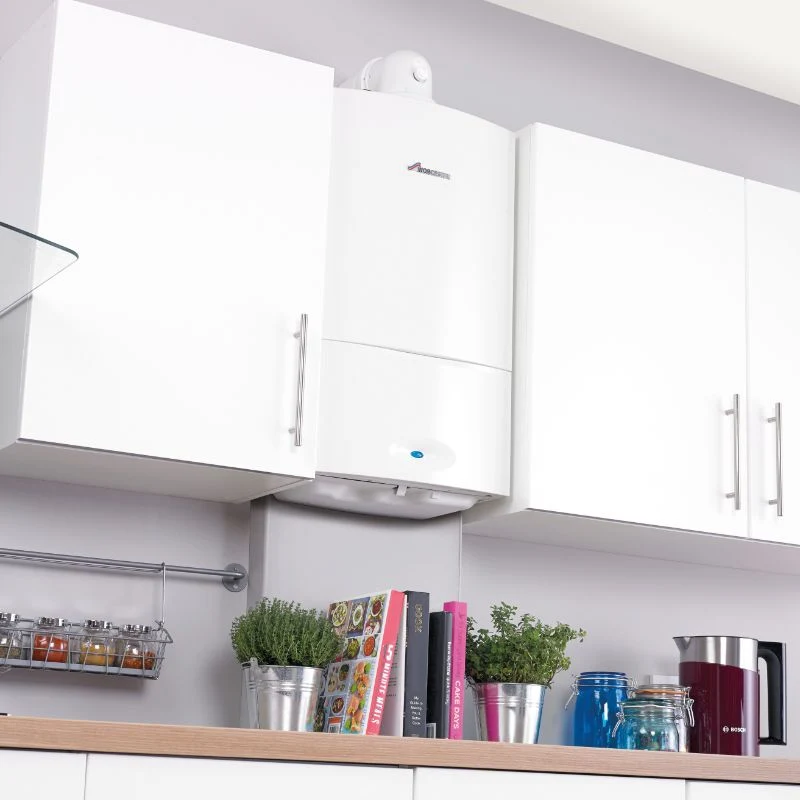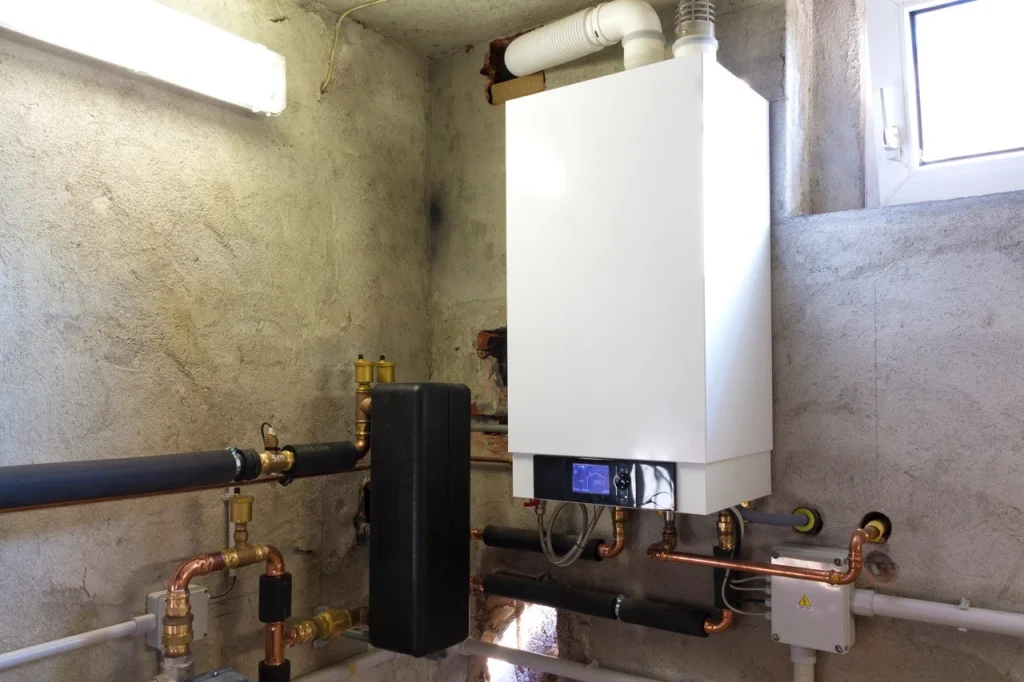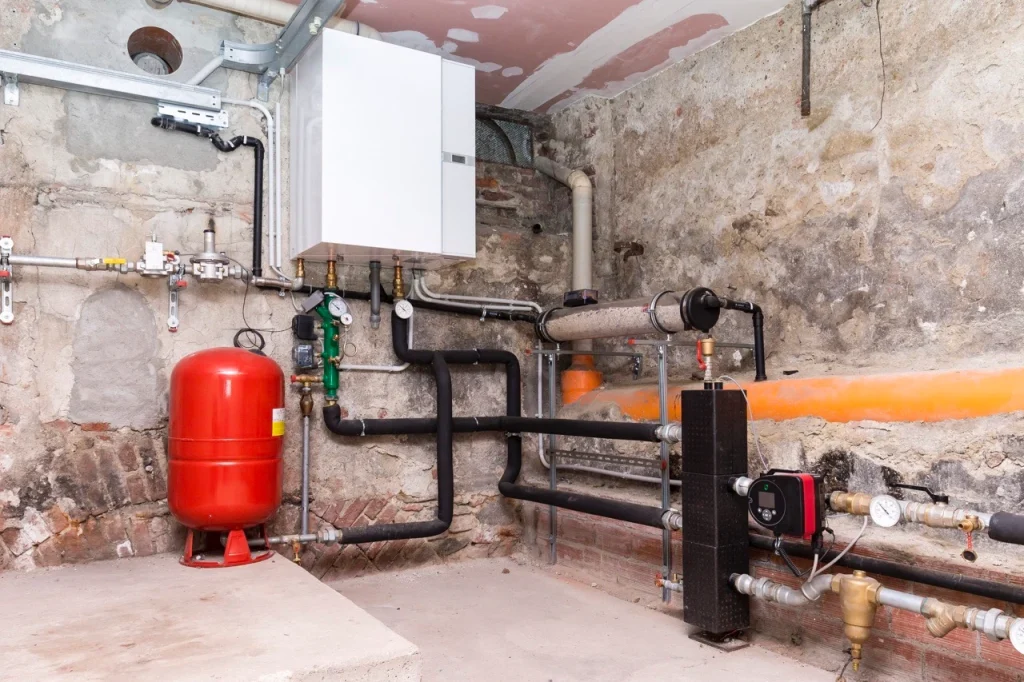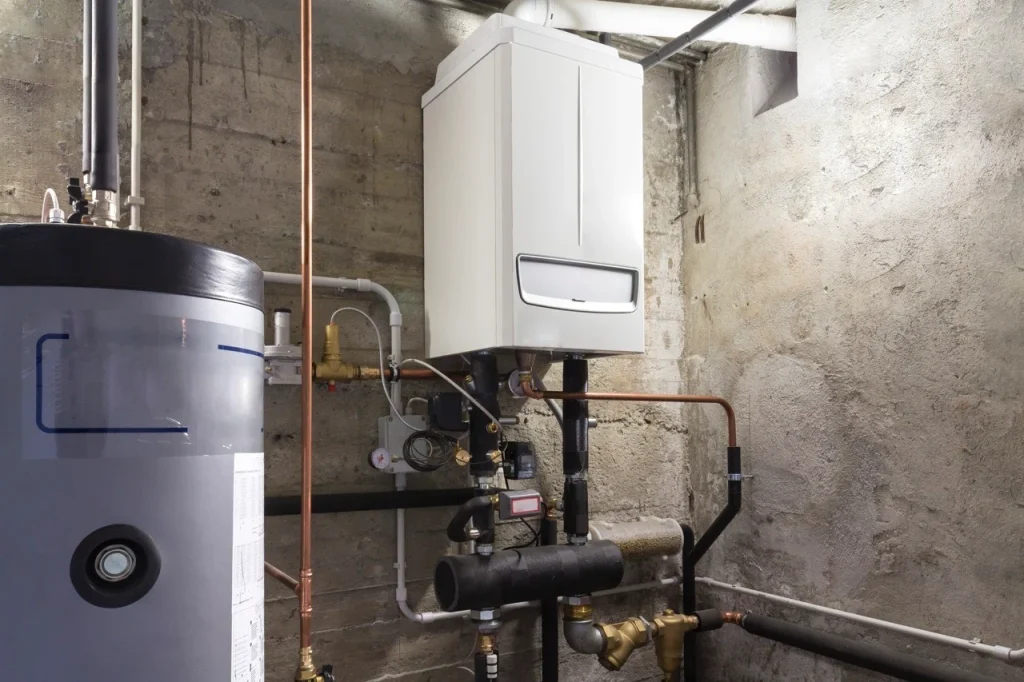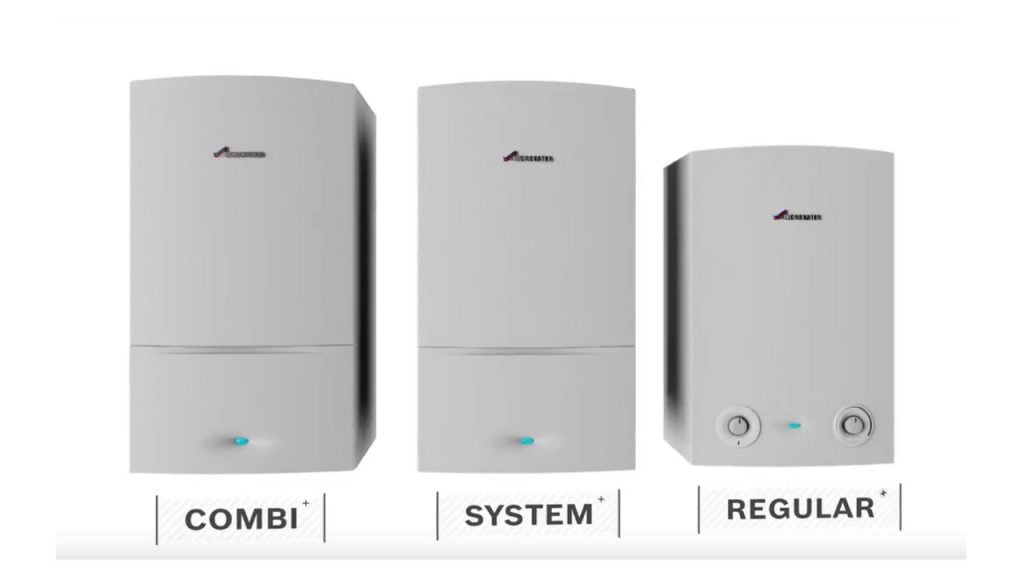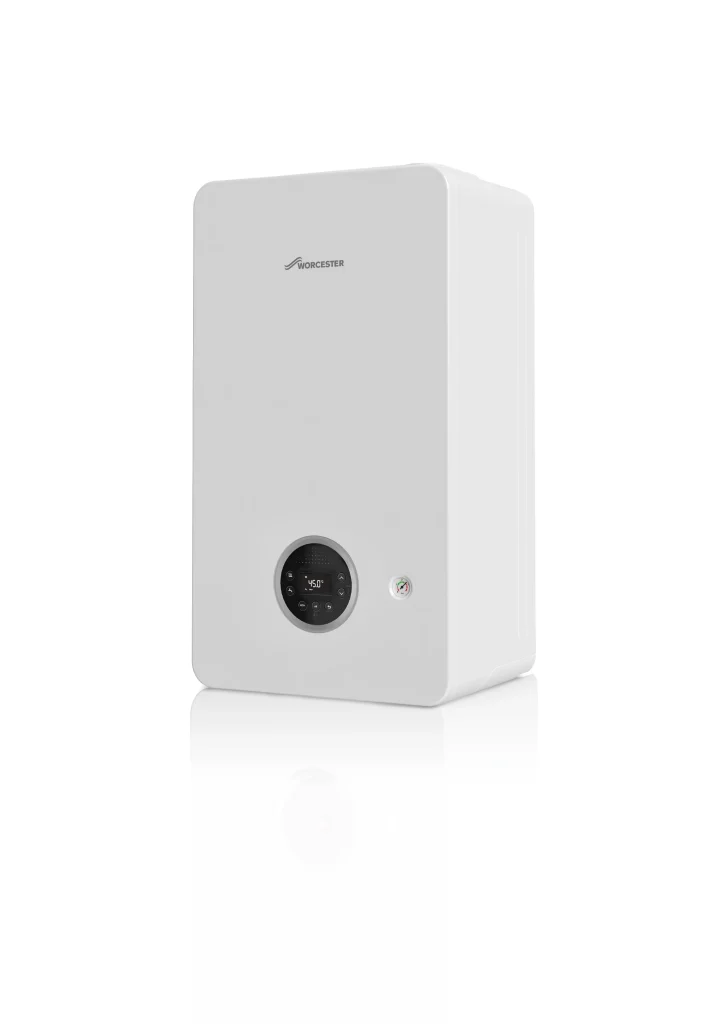A malfunctioning boiler can bring your home comfort to a screeching halt. But don’t shiver through winter nights! Replacing your boiler can be a significant investment, and choosing the right installation service is crucial. This guide will equip you with the knowledge to navigate the world of boiler installation, ensuring you find a trustworthy and qualified professional to keep your home warm and your wallet happy.
Reasons why a boiler installation service is important in the UK
Boilers are a very important part of UK households. They make our homes warm and comfortable. We use them almost all year round. So it only makes sense that we pick the right boiler and the right installer.
Boiler installation services require a professional heating engineer who knows what they’re doing and is a Gas Safe Registered engineer.
Factors to consider when choosing a boiler installation service
Getting a professional installer is important because they can help you keep your heating system up to building regulations. These regulations exist in order to keep our homes and communities safe.
Most boiler warranties require that your boiler should be installed by a professional. Otherwise, your warranty will be null and void.
In conclusion, a professional boiler installer is required to ensure safe and smooth installation. You might think you can save money on boiler installation by doing it yourself but you might end up buying more if anything goes wrong.
Types of Boilers
Overview of different types of boilers available in the UK market
Features and benefits of each type of boiler
There are three main types of boilers. These are combi boilers, system boilers and regular boilers. Each type is different in its own way.
Combi boiler
A combi or a combination boiler is compact in size. It can provide both hot water and heating.
Read more: Do Electric Boilers Need Servicing?

What are the pros of combi boilers?
A combi boiler is very efficient
A combi boiler is very efficient when it comes to energy consumption. It would save you a lot of money since it can be used for both providing hot water and heating your home.
They are small in size
A combi boiler is perfect for a house that is small in size. You will not need to make space for a water tank or cylinder due to the fact that a combi boiler takes water from the mains directly.
On-demand hot water
With a combi boiler you don’t need to worry about having enough water in the hot water storage. It will provide hot water instantly.
Installation Flexibility
Combi boilers are relatively small and consist of a single unit. As a result, they can offer more flexibility when it comes to their Installation place.
Read about: Main Boiler Error Codes / Fault Codes

What are the cons of combi boilers?
- Combi boilers can struggle with high water demand. Having multiple taps or showers on at the same time may lead to one of them to go cold. A combi boiler is not recommended when you have more than one bathroom.
- Combi boilers require high pressure water from the mains. If you live in an area with low water pressure, then the water coming from your taps will also be at low pressure.
- An old plumping network might not be able to cope with high pressure water flow from your combi boiler. So your home might require new pipes before getting a combi boiler.
System boilers
System boilers work together with a hot water cylinder in order to provide hot water and heating for your home. System boilers take water directly from the mains.
Read about: Professional & Reliable Boiler Repair
What are the pros of system boilers?
Can save up space
A system boiler does not need a cold water tank and as a result can save you some space.
Good for large homes
A system boiler can provide water to several taps and showers at the same time. In short, it can meet a high level of demand for hot water.
Compatible with solar panels
System boilers can be paired with solar panels if you are looking for a green way to generate power.
Hot water on demand
System boilers have a built-in pump that can deliver hot water on demand once you turn on a tap or a shower.
Can be more efficient
By using an electric immersion heater, your system boiler can be made more efficient and less reliant on gas.
Read more: Common Sime Boiler Error Codes
What are the cons of system boilers?
- When you use all the hot water stored in the cylinder, you’ll need to wait for the boiler to heat some more.
- System boilers need a hot water cylinder so if you don’t have enough space at your home they might be inconvenient for you.
- If you live in an area with low water pressure, a system boiler might not be the best choice. What is more, if you have old radiators, they might not be able to cope with the high water pressure of a system boiler.
- Due to having more parts than a combi boiler, a system boiler might require more maintenance.
Regular boilers
Regular boilers or heat-only boilers can provide both hot water and heating to your home. They are designed to draw water from a cold water tank and to store hot water in a hot water cylinder.
What are the pros of regular boilers?
- Replacement is simple and easy
Replacing your old regular boiler with a newer version is less costly and damaging to your home. So it’s always the safer option to go with if you don’t want to spend a lot or worry about damages.
- Meets your high demand of heating and hot water
If you have a home with multiple bathrooms, then a regular boiler is a great choice. It can meet your demand for hot water and heating. With a large capacity to store hot water, it means that you can use several taps and outlets at the same time.
- More efficiency
Older boilers with no condensing technology should be replaced with a condensing boiler. Condensing boilers are more efficient and consume less energy. As a result, they will reduce the cost of your heating bills. Nowadays, some regular boilers are 97% efficient.
- Able to have an immersion heater as a backup
A backup immersion heater would make sure that you don’t go out without hot water in case your boiler breaks down. The immersion heater would be fitted in the hot water cylinder.
- Solar compatibility
Presently, you can use solar thermal panels to produce hot water using solar power. Just make sure that your cylinder and the model you buy are compatible with solar thermal.
Read about: Regular Boilers and how does it works
What are the cons of regular boilers?
- Hot water isn’t always instant in busier times
Once you use all the stored hot water in your cylinder, you have to wait for some time to be able to use hot water again. Always buy a cylinder with the capacity to meet your hot water demands and needs.
- Needs lots of space
Regular boilers need space for the water tank and the hot water cylinder. That’s why it’s not a good choice for smaller homes that don’t have much space. For smaller homes, a combi boiler is more suitable.
- Installation can be costly
Because there are many parts to be installed around the house, a new boiler installation can be pricey. Aside from being expensive it can also take a lot of time.
Finding the Right Boiler Installation Service
Researching and evaluating boiler installation companies in the UK
When looking for a boiler installation, it is better to find a local installer because the installation cost varies in different cities across the UK.
What is more, in case of some boiler emergency, a boiler installer that is near you will be able to get to your home as soon as possible.
Importance of checking credentials and certifications of service providers
Make sure to find a boiler installer that is accredited and certified. Gas boilers can be tricky to deal with, considering the potential of gas leak. So make sure to hire a Gas Safe Registered heating engineer who knows what he is doing. Here at Smart Adapt, safety is a priority for us.
Read about: Boiler on Finance
Understanding the cost factors involved in boiler installation
The installation cost varies, depending on the type of boiler you are installing, the size and the complexity of the pipework. Some jobs can be quite complex which might take more than a day and as a result, the cost will increase accordingly.
Tips for budgeting and obtaining competitive quotes
You can make use of boiler finance. Boiler finance is a way to pay for your boiler installation at your ease through instalments. Nowadays, you can pay monthly for your brand new boiler with 0% interest and no deposit needed.
You can easily get a monthly finance plan to pay for your new boiler. This plan will enable you to spread the cost over a period of time that is suitable for your budget. Moreover, you can pay for it in 2 years, 5 years or even in a decade. The choice is yours. And here lies the beauty of boiler finance.

Step-by-step guide to the boiler installation process
The first thing to be done when installing a boiler is to assess the current heating system and try to determine how the job will be carried out. Your installer will check your pipes as well to see if they are in a good condition. This process can determine how long the job will take and what kind of tasks are involved.
Of course by that time, the boiler size and type will be determined as well. In most cases, people will just replace their current boiler with the same type. In other cases, different types might be needed. For example, swapping a regular boiler with a system boiler or combi to a system if a combi boiler can’t meet your home’s hot water demand.
Inspection of the installation area for suitability
The location site would need to be prepared before the installation takes place. A survey of the place will be carried. The designated place will be checked for suitability, making sure the place is big enough to have a boiler installed.
To grant easier access to your installer, it is recommended that you clean and clear the are of anything that might be in the way. The work can be carried much faster when the place of installation is well prepared. So make sure to remove any obstacles that might delay the job at hand.
Installation Process
What comes next in the process is the actual installation of your new boiler. The heating engineer would connect your boiler to the water supply. Your boiler will also be connected to the gas supply. Your heating engineer should be Gas Safe Registered to ensure safety. Remember that gas leaks are dangerous so always hire a Gas Safe Registered engineer.
Other steps will involve connecting the pipework together and ensuring that there are no leaks whatsoever and that everything is in its correct place. Of course, the complexity of the job and how long it can take depend on the job at hand. Whether it is like-to-like boiler swap or replacing your boiler with another boiler type.
Testing and Commissioning
The final step would involve checking that your system is working as smoothly as possible and that there are no leaks. The pipework will be checked to ensure that there are no water or gas leaks.
The heating engineer will also walk you through your boiler’s settings and ensure that your boiler is performing well, ensuring that your boiler is functioning as efficiently as possible and without any unforeseen problems.
Estimated timelines for completion
A survey of the installation site will determine how long boiler installation will last. It can last for a few hours and sometimes for 3 days, depending on the complexity of the job at hand. Sometimes different tasks will be involved.
Importance of regular maintenance and servicing for boilers
In order to keep your boiler working smoothly and efficiently, regular maintenance and servicing of your boiler will be required at least a year after installation. And after that your system should be checked at least once a year.
Boiler maintenance can help detect upcoming issues that are still in their initial stages. Fixing these issues at their start can save you money on costly repairs when it is too late. What is more, a well-maintained boiler or heating system will work more efficiently and can save you money on energy bills.
Tips for finding providers of boiler servicing and aftercare services in the UK
There are also plans that you can get from many companies. It’s like a subscription. In return, your boiler will be serviced accordingly. You can check reviews left by customers to determine if this is the right one for you.
the Best Boiler Installation Services in uk
Smart Adapt has been in the boiler business for quite some time now. We pride ourselves on our expertise and years of experience and hard work. We offer a range of services that include boiler installation, replacement and emergency boiler fix.
Read more about:
Best combi boilers & boiler brands
Genuine Vaillant Boilers Review In Uk
Frequently Asked Questions
How much is a typical boiler installation UK?
A new boiler can cost between £1,500 and £5,000 with installation cost. Combi boilers range from £500 to £3,000, conventional boilers cost between £600 and £3,500, and system boilers are priced from £580 to £3,500.
How do I choose a boiler installer?
Always check if they are accredited and certified. Make sure they are Gas Safe Registered.
What is the best boiler in the UK?
There are different brands of boilers available in the UK, the most common are:
Worcester Bosch
Vaillant
Viessmann
Baxi
Ideal
Who are the top 5 boiler manufacturers?
The top 5 boiler manufacturers are Worcester Bosch, Vaillant, Viessmann, Baxi and Ideal.






